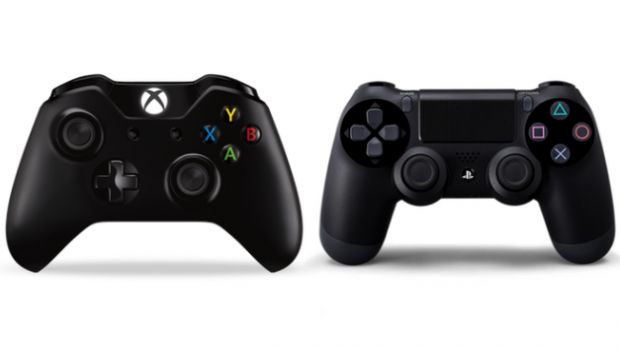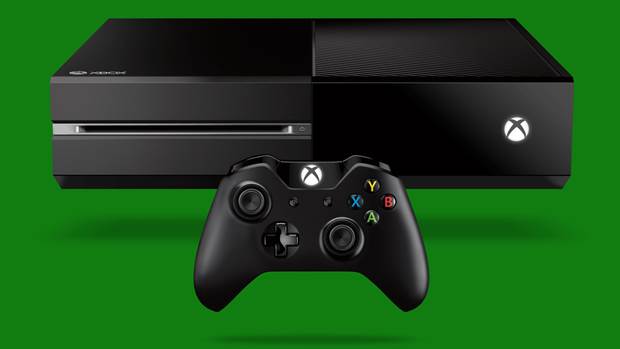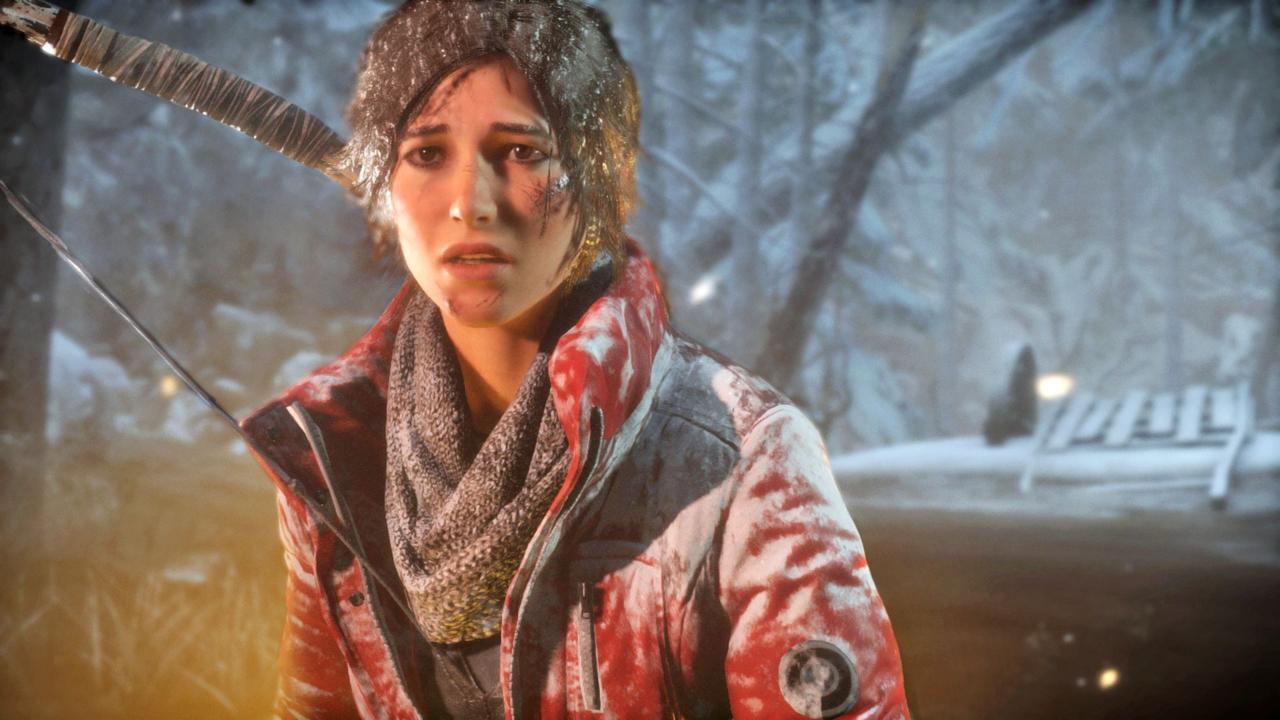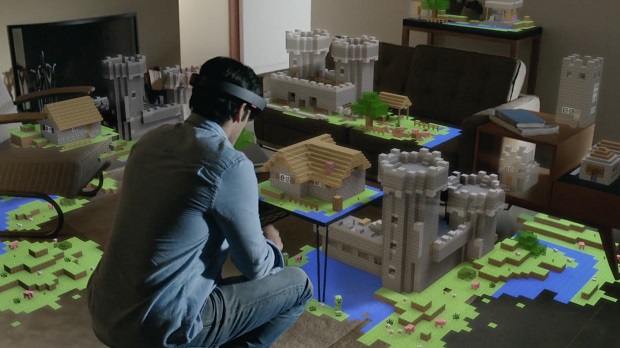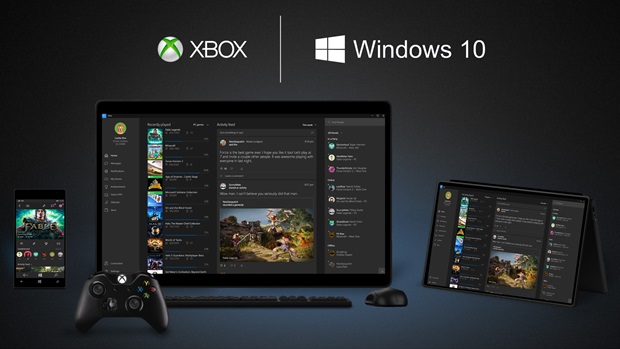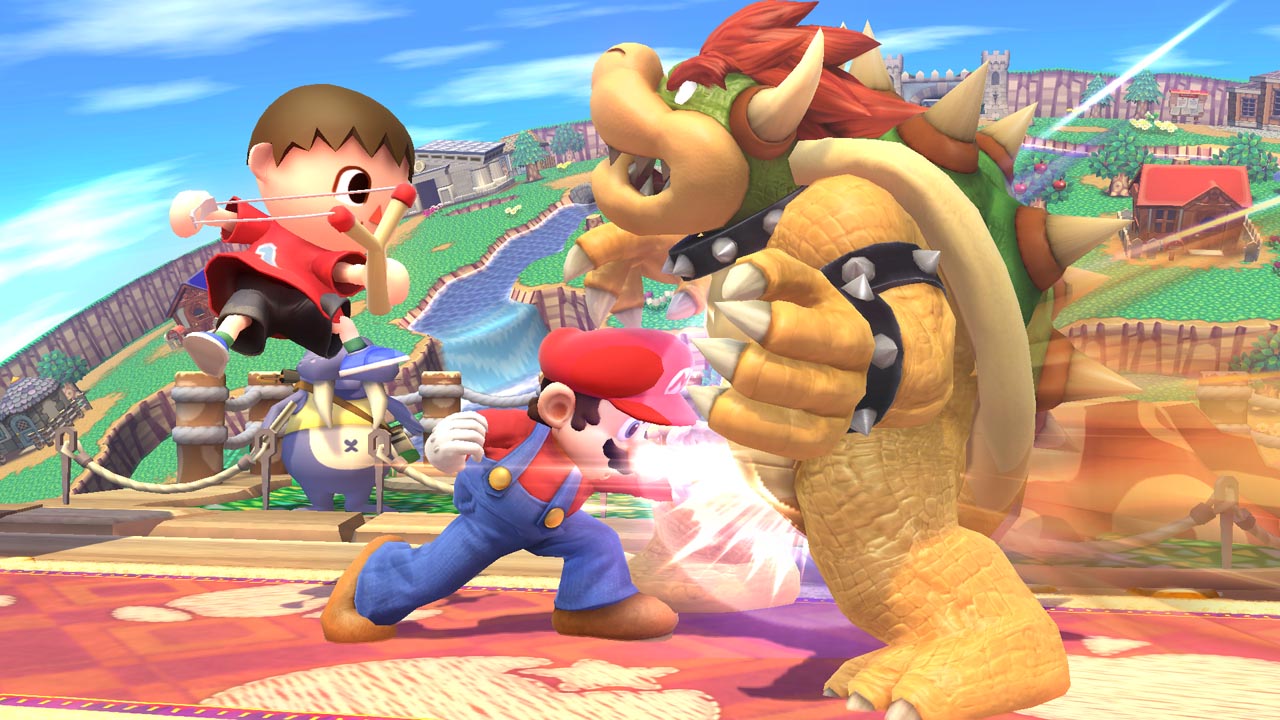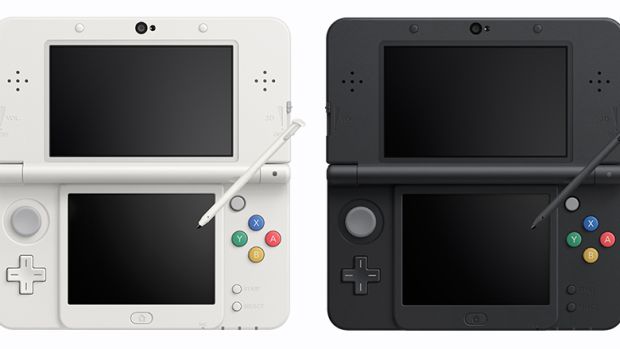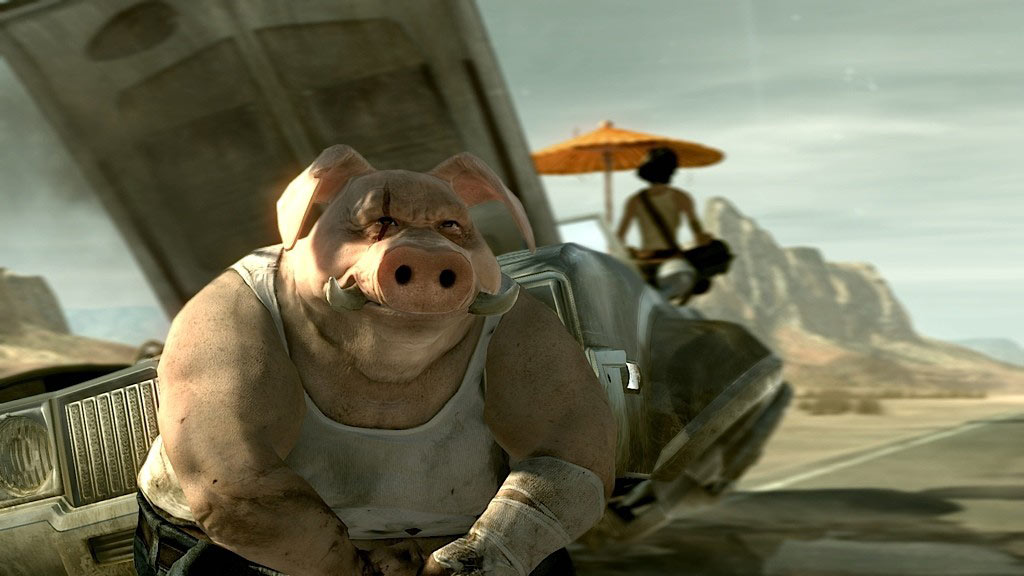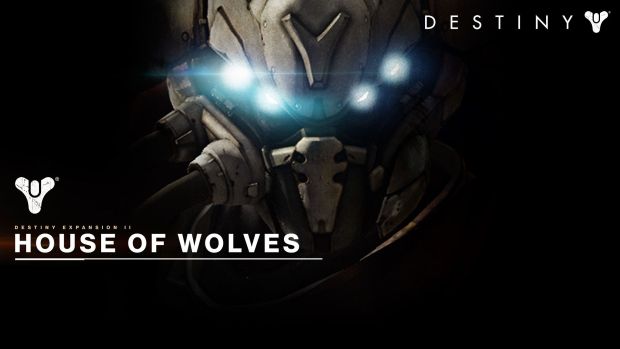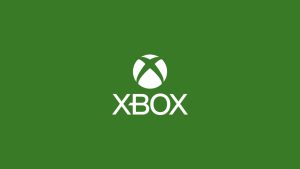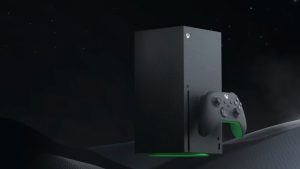
Wedbush Morgan analyst Michael Pachter is no stranger to controversy but over the years, he’s been a strong source of information and opinion regarding the gaming industry. More than rumour mongering, Pachter has focused on analysing current trends and how they’ll pan out for key players such as Microsoft, Sony and yes, even Nintendo. GamingBolt had a chance to speak to Pachter about this and many other things, ranging from his thoughts on content plans for Destiny to whether games like The Last Guardian and Agent would ever see the light of day.
Of course, we also made sure to get his thoughts on the deal behind Rise of the Tomb Raider which is releasing first for Xbox One and Xbox 360 and whether Respawn Entertainment will have a timed exclusivity deal for Titanfall 2 which is confirmed to be coming to the Xbox One and PS4 as opposed to its predecessor.
Note: The interview was conducted by Ravi Sinha and transcribed by William Borger.
"I still read guys posting on the internet saying “Oh, this is an all-in-one box,” the Xbox One, and as a gaming device it is still inferior to the PS4. I suppose that if you look at, you know, DDR3 versus GDDR5 RAM, as if anyone is really taking advantage of all of that, I suppose maybe there’s some marginal difference in quality, but it’s marginal."
Ravi Sinha: As you’re aware, Microsoft led the NPD in November and December as well, but in January, the PS4 took over the top position again. What is your take on how the Xbox One is going to perform for the remainder of the year, and do you think that Microsoft is going to be able to get that momentum back?
Michael Pachter: You know, I spoke with Microsoft after the numbers came out in January, and in a not so defensive way, but clearly they were shaken that after the price went back up to $399 that they fell behind again, and they assured me that since they cut the price in mid-month that their box started selling better. I don’t think they know the cadence of PlayStation 4 sales, so I’m not sure that Microsoft can actually gauge whether they outsold PS4 or not, but there was an increase in sales.
I think it’s fascinating. I really thought that most Xbox 360 owners would lean towards buying an Xbox one and most PS3 owners would lean toward buying a PS4, and that might still actually be the case, but what we have now is we have a bunch of growing up Wii owners. So you know, let’s say boys that were between 6 and 12 in 2006, 2007, 2008 who are now between 7 and 8 years older, whatever that would be, between 13 and 18, and they may not have been in a position to buy both a Wii and an Xbox 360 or a Wii and a PS3, and those guys are growing up.
The Wii U is a terrible alternative for someone who can only get one console because it’s got such limited software, and I think that Sony’s just winning that audience. I’m not sure what Sony has done. I know what Microsoft has done wrong, but Sony is clearly resonating better with the guys who were undecided. And I could be wrong, but I think of this much the way I think of people who have historically voted Democratic always voting for Democrats and people who have historically voted Republican voting for Republicans. I think that you just kind of own your console of choice and you will stick with that unless they do something really bad.
I think that Microsoft probably screwed up at E3 in ‘13, but they recovered quickly and I don’t think that any gamers still harbor any bad feelings from the DRM that they haven’t implemented. I think that bundling Kinect and making people pay hurt them for that first year, but then they unbundled it and made it the same price as PS4. I still read guys posting on the internet saying “Oh, this is an all-in-one box,” the Xbox One, and as a gaming device it is still inferior to the PS4. I suppose that if you look at, you know, DDR3 versus GDDR5 RAM, as if anyone is really taking advantage of all of that, I suppose maybe there’s some marginal difference in quality, but it’s marginal.
And again, I think that to get somebody to switch parties politically is tough, to get somebody to switch consoles I think is tough, so it has to be explained as the Wii audience, as they grow up, is more interested in the PS4 for some reason. Maybe because Sony has been around longer and done a really great job. I mean, Sony has done nothing wrong this cycle at all.
Ravi Sinha: Well, when you talk about some of the things that Microsoft has done wrong, one of the things is that same pricing scheme they had for the Xbox One. In the holiday season, when it first started, they had it for $349 and they had great sales and then they raised it again in January and they brought it down again in the middle of January and it just became “Well, that’s the price right now going forward, I guess, unless we say otherwise.” Do you think Microsoft should firmly confirm this price drop, and if they did confirm a price drop, would this be the one they stick to or would they go for something else?
Michael Pachter: Well, their choice of language was fascinating because when they dropped the price in late November they called it promotional pricing, and they said very clearly the day that it dropped that it was going back up on January 3rd. So the day that it dropped, which I think was November 28th or something, it said it’s going back up on January 3rd and it did. On January 15th, when they announced that it was dropping again on the 16th, they called it “special pricing” and they did not put a date in to bring it back up. So I think the answer to your question is, Microsoft desperately wants to win. Winning matters more to them than short term profit and I emphasize short term because I think that they understand that the profit stream from an Xbox One owner is a long one, so if you give up fifty bucks of profit now because you price it at $349 instead of $399, you’re going to make that $50 back later because people will buy tons of software.
I think that they’re being pretty smart about it. I think they’re being pretty disciplined about it, but yes, I do think the price will stay down. The interesting thing is Sony’s probably not feeling too compelled to cut, so I think Sony’s probably going to stay at $399 and I’m curious to see if the Xbox One does outsell the PS4 at the lower price point because again, holiday was kind of mixed up with a bunch of bundles. We were getting a lot of free software. I don’t think – that Assassin’s Creed bundle was around in January, but I don’t think we’re going to keep getting software. Those bundles kind of are ending.
"Microsoft, by cutting the price, trained consumers, especially the second time, that you might as well wait. So, I don’t know the answer. Because it’s a console and there’s only one model, anybody who knows anything about consoles knows what the price is, so it’s hard to jack the price around."
Ravi Sinha: One of the reasons the PS4 could have overtaken the Xbox One in January is because they had that one week in the beginning of the month where “Okay, the price is going to go back up,” and they had that one week where the price was $399 again and they brought it back, and people think that one week is what helped the PS4 edge ahead. Do you think that actually had some significance?
Michael Pachter: Well, that’s what Microsoft said. I mean, I don’t know. Microsoft, by cutting the price, trained consumers, especially the second time, that you might as well wait. So, I don’t know the answer. Because it’s a console and there’s only one model, anybody who knows anything about consoles knows what the price is, so it’s hard to jack the price around.
I’ll use a personal example: I bought a television over the holidays and since I cover Best Buy, I actually look at TV prices, and I bought this TV, and I didn’t buy it Black Friday weekend, but I first noticed it Black Friday weekend, and I ended up paying $160 more the week after Black Friday weekend. I felt like kind of a dope, but it was a Samsung, it was a giant TV, it was something I wanted, and I thought, “I really screwed up because I paid $160 more. I missed the Black Friday sale.” And it didn’t go down again for the rest of the holiday. It’s gone up $300 since I bought it, and the reason it’s gone up in price is that there’s so many models of television and so many sizes, and so many different combinations of Smart TV, and 3D, and LED, and 4K that I think consumers are easily confused, so they can jack prices around all the time, and my guess is they’re selling them for $300 more than I paid, and I could have gotten mine $160 cheaper.
You can’t do that with a console. Everybody knows its $399 and $349, and I think when Microsoft cut this early in the cycle, they kind of screwed themselves into keeping the price down. I have a feeling we’ll never see a $399 price point again, and if they do it, you know, you will tell your buddies “Don’t buy it now. Wait, because they’ll get desperate again and the price will drop fifty bucks. And if you wait ‘till Christmas, you might get some software.
I mean, that’s the thing. I think they’re training us, “Wait for the deals.” I don’t know if you pay attention to Black Friday weekend in the U.S. and just all retail sales, but we had a bad Black Friday weekend this year, and holiday ended up, but Black Friday ended up down because consumers have been trained “You don’t need to buy it that weekend. It’ll be on sale the next week and the week after and the week after.” Everything. So I think Microsoft is falling into that trap of training consumers, “Just wait for the price discount, because we’re going to give it to you.”
Ravi Sinha: Well, speaking about the PlayStation 4, last year there was probably 2 or 3 major releases for the PlayStation 4. Off the top of my head, I can remember inFamous: Second Son and Drive Club. But this year it’s a little bit different because they’ve got a really exciting lineup, and in a way, they’ve got more exclusives than the Xbox One does currently. So do you think these exclusives will matter in helping Sony conquer the U.S. market this year?
Michael Pachter: Yeah, I got schooled on Twitter by Phil Spencer because I said that I thought Sony’s lineup was really impressive, and I’m not sure that they’re all coming out this year, but they announced six of them at that PlayStation Experience back in December and I’m pretty sure four of them are coming out this year. But they announced a bunch of big titles, and some of them we already knew about, like The Order. But Phil shot back on Twitter saying I don’t know the Microsoft lineup, and theirs is quite comparable and quite competitive, so I have a feeling we’re going to get some announcements, perhaps as early as GDC, because Phil is doing the keynote at GDC, so I think that would be a good time for him to announce something. And I’m positive that by E3, they’ll announce something.
That’s what’s kind of cool about being a gamer right now is that, these guys want your business so badly that they’re going to keep coming up with cool stuff. Right now, I think you’re better off buying a PS4 if you care about these exclusive titles. If you care about the non-exclusive titles, you’re better off buying an Xbox One because it’s cheaper.
"I don’t actually know the technology inside the PS4 and the Xbox One, but they are super quiet, and the only thing that really takes cooling is the moving parts, you know, the disc drive and the hard drive, and so I think that what you’ll probably see as they come down in cost is that they’ll replace the hard drives with flash memory."
Ravi Sinha: When you speak about the exclusives that Microsoft has, one of those big exclusives is Rise of the Tomb Raider, and everyone’s debated about how this is actually going to make a difference in sales. Why do you think Square Enix went ahead with the decision to make it exclusive to Xbox One, even if it is for a few months, when the Xbox One is still playing catch up with the PS4, as far as sales go?
Michael Pachter: Back in 2007, ‘08, 09, when Rob Dyer was the head of third-party relations at Sony, he told me that Microsoft was paying publishers for these one month exclusives, and the most famous was the Call of Duty map packs always came out 30 days early on the Xbox 360. And Rob said the amounts they were paying were ridiculous and Sony wasn’t able to match and get them the same day. Sony had to outbid Microsoft to get thirty days early, and he said it wasn’t worth it.
I think he turned out to be wrong. He’s not there anymore, but I think he turned out to be wrong, and I think Microsoft continues to use that trick to pay up for limited time exclusives, and so whatever they paid Square Enix, I’m sure Square Enix did the math and feels that they’re whole. They’re going to sell, probably, a few less units on the PlayStation and a few more units on the Xbox, but the amount of money they got up front offsets whatever the net loss in sales is. And Microsoft is probably paying millions of dollars. Probably not hundreds of millions of dollars, but probably as much as ten million dollars, maybe more.
Ravi Sinha: Speaking more about the PS4 and the Xbox One, in regards to the box sets that are there, as you said you can’t exactly jack the prices around for consoles because they stay static most of the time, and consumers are trained to wait for specific times when the prices will go down. One opportunity where the consumer could think, “Okay, I’m only going to buy it as this specific time” is when they release a slim version of the console, like Microsoft did with the Xbox 360 several years ago. Recently, there have been a lot of rumors in regards to a slim version of the PS4 and Xbox One. Has there been anything concrete from Microsoft or Sony regarding this?
Michael Pachter: No, and you’re not going to hear about it, probably, until it happens. But it’s technology driven, so the original Xbox 360 was this white thing, and it got the Red Ring of Death, and the reason it got the Red Ring of Death was that it ran pretty hot and the circuit board wasn’t soldered properly and so they’d kind of snap because they’d head and cool and they’d break. The other things about it was when they put the Slim version out they called in whisper quiet, because they figured out how to run the thing cooler because the fan didn’t make as much noise.
I don’t actually know the technology inside the PS4 and the Xbox One, but they are super quiet, and the only thing that really takes cooling is the moving parts, you know, the disc drive and the hard drive, and so I think that what you’ll probably see as they come down in cost is that they’ll replace the hard drives with flash memory. So if you remember the Xbox 360 came out with that inexpensive 4GB model. 4GB is absolutely inadequate to do anything. I have a 128GB iPhone because every version of iOS is like 6 gigs, so I figured I couldn’t deal with the smaller flash drive. The point is I just got offered a 128GB memory stick, a flash drive, and it was $28 retail price, meaning that flash memory has come down to something like that. I would say by the time these guys can put 256GB or 512GB flash inside the box, they’ll run super cool.
I’m talking to you right now on my Ultrabook, which I think I paid something like $700 or $800 for. This thing has, I think, 512GB of flash. It’s sitting on my lap and it’s not warm at all and there’s no fan, so that’s what I think they’ll do. If you think about my Ultrabook, what’s in here that’s not in an Xbox? I probably have better components in this thing than the Xbox One. So if they get it down to that, it’ll be super thin, super quiet, it’ll run super cool. That’s going to come, I just don’t know if the price of flash has come down enough yet for them to replace a hard drive. We’ll see.
Ravi Sinha: Since the Xbox One has come out, there has been this thing about the size of the box, and obviously there are these rumors about the slim versions, and as you discussed, one of the ways that they could make it smaller, or at least make it run cooler is by flash storage. One thing that’s sort of been downplayed since the Xbox One was first revealed was the power of the cloud, except for that one tech demonstration we saw last year. We haven’t seen anything from Microsoft since then. So the question is, are we going to see Microsoft use the cloud to improve games or is it something that simply isn’t going to happen this generation, or in the next few years?
Michael Pachter: Yes, but I think it’s not going to the cloud the way you think about it, because streaming games from the cloud is going to have some latency issues. If you go back to January 21st, Microsoft had a few announcements. One was HoloLens, but one of the announcements was you would have game portability and you could take your game and play it on any Windows device in the same house. Well, think about that backwards. The announcement they made was, you could take your Surface tablet or your Windows Phone or your Windows 8 PC and you could play a game that was resident on your Xbox One.
Let’s flip that backwards: what about playing a game on your TV that’s on your PC? That’s where they’re headed. And when I say your PC, your PC might end up being your phone, or it might end up being your tablet. So what Microsoft is trying to do is integrate Windows and this Windows 10 initiative is to make sure that everything that is a Windows device works with every other Windows device, including the Xbox One. So I think this generation, Microsoft will say get the game on your PC, which means you can download the game onto your PC hard drive, and the Xbox One will figure that out, and it will talk to your PC, and it will go backwards onto your TV.
Now the question is, if Microsoft comes up with that, will Google say, “Hey, Chromecast can do the same thing?” Will Amazon say “Hey, our Fire TV stick will do the same thing?” Will Apple say, “Hey, an AppleTV box will do the same thing?” A Roku box will do the same thing. A Samsung Smart TV will do the same thing. I don’t know. Microsoft obviously doesn’t really care as long as every one of these devices somehow pays for Windows. My guess is Microsoft is going to invent it, and it will work better on Microsoft devices, much like Apple software works better on Apple devices.
I think that’s their long term plan, and I think that’s been their long term plan since 2000, when they announced the Xbox. I think they’ve always been thinking, “How do we integrate gaming into a Windows PC environment?” and I think we’re finally there. So I think you’re going to see something in the next year or two.
"I’m more of a fan of augmented reality for games. Virtual reality, I think, is great if they’re going to show you how to cook something or how to put a table together, or do surgery on you from five hundred miles away. For that, I think virtual reality is really cool."
Ravi Sinha: Well, when you talk about HoloLens, we know you’ve been critical about VR gaming in the past, but in regards to Microsoft’s HoloLens, do you think it has the potential to compete or even compare to Sony’s Project Morpheus or even Oculus Rift?
Michael Pachter: Well, they’re all slightly different and I think that a virtual reality headset is a hard sell. I think an augmented reality lens is probably a little bit easier sell. And I have to say, I just got a demo of Oculus at CES and they added three-dimensional sound and it was impressive, and it really changed the way that it felt. I really seriously didn’t get dizzy, you know, it was cool. But I still think that we have this kind of spatial relationship that we like to see our hands, and I don’t know if when you play games, if you move your hands around. I know why I do it. We all do it, though. Nobody sits there with the controller in his lap, static, while he mashes buttons. We all kind of move it slightly because that’s how we do things. You can’t do that in virtual reality. You can do it in augmented reality.
I’m more of a fan of augmented reality for games. Virtual reality, I think, is great if they’re going to show you how to cook something or how to put a table together, or do surgery on you from five hundred miles away. For that, I think virtual reality is really cool. I think both work. I just think virtual reality is going to lead for non-gaming applications, and once we have a big enough install base, then I think people will play games, just like smart phones.
Nobody buys a smartphone because they say they want to play Angry Birds. They buy a smartphone because they want to talk on the phone. But they like to surf the web and play games. I know the number one use is games, but that’s not the number one reason people buy them. Virtual reality is the same thing. The number one use may end up being games, but it’s not going to be the reason people buy it. Augmented reality, I think, yes has a better chance of being purchased for games, because it really is just a simple set of glasses.
I just saw a product, I’m blanking on the name, I just saw a product at DICE, and it’s augmented reality, and it’s a 3D pair of glasses that works with any display, even a non-3D display, and it’s amazing. Stuff comes right out at you, you can move things around, and it’s really cool. That kind of stuff, I think, is probably going to emerge faster because it’s cheap. It’s really cheap. You end up just buying software and glasses, and you buy software that just does what you want it to for the same price. So, augmented reality wins, I think. Long term, virtual reality wins because there’s so many cool applications like learning, but not near term.
Ravi Sinha: Another trend that we’ve been seeing, and I’m guessing this is more of a recent thing that Microsoft has been doing with the Xbox One, but we’ve been seeing Xbox One games that have sort of been announced for Windows 10, like Fable Legends. It’s going to come out on Windows 10 as well as Xbox One. Do you think that we’ll eventually see more Xbox One games coming out for Windows 10, especially ones from first-party studios?
Michael Pachter: Yeah, I think they all will. I think that’s their goal, to integrate it so that it’s a seamless opportunity, and the truth is, if a game comes out on PC, anybody connected to the internet can play it. And it may be on the cloud, but for sure, anyone with a PC can play it, first or third-party.
If you’re a fan of FIFA, you might be interested in playing EA’s FIFA game, but you might not have an extra $350 or $400 to buy a console, and if you can play it on PC, I mean they do sell it on PC, I think you have a much bigger addressable market for the guys who just want to play that and nothing else because no one’s going to buy a console just to play one game. It seems to me that every game has a couple million people who would buy it if they could play it just on PC and have the same experience, and that same experience is sitting with a controller and playing it on your television. I think every game should go that way.
They just have to somehow protect against piracy, and the way to protect against piracy is that that PC version probably doesn’t work with a mouse and keyboard, it only works with a controller through the Xbox on your TV, or through the Chromecast stick on your TV. Ultimately, I think the publishers are going to try to push this because I think they would like to sell more copies of each of their proprietary games.
"I think the tension is that consumers have a pretty good idea what it would cost them to get these games a la carte, and publishers have a pretty good idea of what they would get if they sold them a la carte, and they can’t both win."
Ravi Sinha: Would this extend to franchises like Halo or Forza? Because there have been people who do pick up a console specifically because of a Halo or a Gears of War, and if it comes to PC, wouldn’t that take away the motive to get the console in the first place?
Michael Pachter: Yeah, that’s why I said it’s the opposite of what you said. I think the first-party stuff will likely never come out on just PC. I think you’ll be forced to go through the Xbox. But they’ll let you play it on your PC if you have the Xbox version. I think third-party titles will have a huge incentive to get off of consoles, and I don’t mean off exclusively, but off in addition to console because the publishers don’t have to pay royalties on that version. The publishers would rather you connect to your TV with a Chromecast stick than with an Xbox.
Yeah, fine, if you have an Xbox, buy it on the Xbox. But if you don’t have an Xbox, why would EA not sell you FIFA? They will, unless you steal it, and they would love to make sure you’re able to play that. So I think FIFA sales go up by 50%, I think Call of Duty sales go up by 50% as soon as they go off console in addition to console. They just have to keep people from stealing it.
Ravi Sinha: When we talk about the unified architecture that’s happening with Microsoft with Windows 10 and Xbox One, Sony, in a way, is going for something like that with the PlayStation Now system. Right now they just have PS3 games, but eventually they want to get to a point where they can bring all the PlayStation games, even PlayStation 4 games, streaming to anyone with a smartphone or a smart TV. Right now, we know the initial subscription plans, and they seem reasonable enough for now, but do you think they offer long term value, especially when it comes to the fact that you don’t really own those games beyond one month, and you can’t really play all of them at the same time?
Michael Pachter: Yeah, I think that the offering is probably not a great value relative to the price for most people. I mean, there’s 150 games, I think, and any given games is probably interested in 10 of them. But the idea that you’re going to pay as much a sixty bucks to dabble with ten games, you could buy almost all of them used, and trade them in when you’re done, it would cost you almost $60. So I just don’t think that most people will view that as a good value. Subscriptions have to be cheaper than the pay-as-you-go rate in order for people to be attracted to them, and I don’t think that this is priced low enough to be that attractive today. Let’s see if they get more software.
The problem is, from the publisher perspective, if they’re getting less money than they think they can get from selling it, then they aren’t going to put it up on PS Now. The publishers have to think they’re getting more, and the consumer has to think that he’s getting more, and the truth is they both can’t be right.
I think the tension is that consumers have a pretty good idea what it would cost them to get these games a la carte, and publishers have a pretty good idea of what they would get if they sold them a la carte, and they can’t both win. Sony’s trying to insert itself in the middle, and I think you just have a natural tension where consumers want it cheaper and publishers want it more expensive, and the consequence is Sony’s not going to get as many games as they would like, and if they don’t get as many games as they would like, consumers are not going to perceive that it has huge value. I don’t think it’s a great value, but let’s give it time and see if they convince publishers to put more content up.
Ravi Sinha: So on one side we have Sony, which has PlayStation Now and all these exclusives, and on the other side we have Microsoft, which is sort of starting to reveal its plans this year in terms of indie games and exclusives, and they haven’t even revealed what they’re going to do with Minecraft, in regards to Xbox exclusivity. With all in mind, even though it’s a little early to discuss this, what do you think is going to happen at E3 this year?
Michael Pachter: Well, just on Minecraft, and I don’t know if it’s going to happen this year, I think what Microsoft will do is keep exactly the same Minecraft game available to anybody with a phone, tablet, or PC or Xbox or PlayStation and not worry about it. But I think there will be new stuff coming out on Minecraft that will be Xbox exclusive. I mean, they spent two and a half billion dollars, they’d better do something exclusive. I don’t think they will abandon their core audience and say you can’t play on PC anymore. That’s not going to happen. But ultimately, I think there will be stuff that’s only available on Xbox and it’ll just be tiered. I don’t know if that’s an E3 announcement.
I think we’re pretty far along in this console cycle, and we have just, in the last seven or eight months, heard about a lot of new IP. Back a couple of years ago, it was Watch Dogs and Titanfall. Then we started hearing about The Order and Bloodborne and Battleborn and Evolve. I think we’re at the point in the console cycle where you’re going to hear about probably ten or twelve new I, and that’s cool. I think new IP is what gets people excited. Ubisoft last year announced The Division and a new Rainbow Six. I just think people love that stuff. I remember back in 2009, it was either 2008 or 2009, Take Two announced that they signed a deal with Rockstar where Rockstar owns 49% of any new IP they create, and they haven’t created any yet, and that was literally six years ago, so they’re working on something. And Take Two told me at the time that Rockstar was working on new IP, so I think that’s exciting.
You know, they bought L.A. Noire, that was somebody else’s. If you remember, Agent was their 2006 new IP that never came out. I think that if Rockstar does something new, people are going to get stoked, and they should because those guys are really great. I think you’re going to get new IP from Activision this year. They have unannounced initiatives that will be announced this year. That’s cool. I don’t know what it is, but it doesn’t matter. I think gamers love that stuff and should. So I think this E3 is going to be more momentous from a new IP prospective than any in the past, so that’s going to be fun.
"The Wii U is selling at a fraction of the pace of each of the other two, so no. I mean, far fewer than half of what the other guys sold. And I can’t tell you NPD numbers because the NPD is weird about it, but under 100,000 Wii U’s in the U.S. is pretty poor."
Ravi Sinha: Another thing that Microsoft sort of hyped last year, and then they said, “Oh, you’ll have to wait until the end of next year until you actually see something from it” is DirectX 12. There’s a lot of claims that DirectX 12 drastically changes PC and Xbox One games, and everything will be completely different going forward. What are your personal thoughts on that?
Michael Pachter: I don’t know how a microwave works. DirectX 10, 12, I don’t know what they do.
Ravi Sinha: Another thing we have to talk about is Nintendo. They started off really badly, actually, with the Wii U, and then last year they sort of got their footing with all of these different first-party games, and this year I would say they might have the best lineup if we take games like Zelda and Star Fox into account. Do you think they’ll have a chance to compete against Sony and Microsoft for the rest of the year, especially since the latter two haven’t really revealed what their biggest releases are going to be?
Michael Pachter: I don’t. The Wii U is selling at a fraction of the pace of each of the other two, so no. I mean, far fewer than half of what the other guys sold. And I can’t tell you NPD numbers because the NPD is weird about it, but under 100,000 Wii U’s in the U.S. is pretty poor. The Wii was over 100,000 every month until like 2011 or ‘12. I mean, over five years of 100,000 every single month and under 100,000 units in a month is terrible.
The right way to think about console sales in the U.S. is about 60% of the annual number is January through October, and about 40% is November and December. So if you’re under 100,000 in January through October and you’re at 60%, you can do the math. I mean, they’re just not even doing a couple million units. It’s terrible. No, it’s a disaster. They are losing their ass, and the reason that they’re losing their ass is that they sell hardware at a profit, and they sell software at a big profit, and small install base, they’re just not selling that much software. So, Nintendo is doing terribly on the console.
They’re doing terribly on the handheld, but on a relative basis, far better. The 3DS is selling far fewer than 15 million units globally, and they’ve lowered their forecast again, and the DS sold 30 million, I think it averaged 30 million for five years. The 3DS is under 15 now, and declining, and that’s because of smartphones and tablets. You know, the casual gamer just doesn’t care.
So if you think about Nintendo’s business as being roughly 50% hardware and software for handheld and 50% hardware and software for console, their handheld business is half as big as it used to be, and console business is a much smaller fraction. That’s why they’re in bad shape.
And they’re not going away because they have plenty of cash and no debt and they can keep losing money for ten more years and they still will be in business, but I think that everybody would win if Nintendo would figure out how to compete on consoles, and either throw in the towel and stop making consoles and start putting their software on their competitor’s consoles, or come up with a competitive console, and they are doing neither. No, they will not be doing well.
Ravi Sinha: So they are not in a situation right now where they can release a successor to the Wii U sometime in the next few years?
Michael Pachter: Yeah, I’m pretty notorious for my 2009 prediction that they should do a Wii HD and catch up with the Xbox 360 and the PS3, and it took them three years, and the Wii HD is called the Wii U and it exactly caught up with the Xbox 360 and the PS3. Now they need to do a Wii 3 and catch up with the Xbox One and PS4, and they’re already a year too late and they’re certainly not coming out this year, so maybe they’ll be three years late or four years late. I think that their management is just convinced that everything is going to turn around and they’re wrong.
It’s sort of like being an alcoholic and recovering. The first step is to admit you’re an alcoholic. They have to admit that their hardware strategy isn’t working, and so far, they haven’t admitted it. And unfortunately, your listeners won’t admit it either. You know, all they do is regurgitate all the crap that Nintendo says. “Oh, you know, Wii U sales were up 82%” or whatever their monthly momentum emails say.
Yeah, and I’m making up these numbers, but when you go from 40,000 to 75,000, yeah, that’s up 80%, but yet the competitors are selling 200,000, then that’s not a good number. Order of magnitude, that is kind of where they are. They’re not even close. So who cares?
What kills me is, if you look at cumulative sales of the Wii U, it’s still under 10 million, and it’s been out a year longer than the PS4 and Xbox One and those guys are just distancing themselves every month from Nintendo. And Nintendo’s falling further and further and further behind, and with a small install base, you have seen Electronic Arts abandon the Wii U, you have Activision largely abandon it, I know Skylanders is on it, you’ve seen Ubisoft largely abandon it. I know Just Dance is on it but they’re not putting Assassin’s Creed on it anymore, or Call of Duty. You just can’t compete if the only games that are playable on your console are your games. It just doesn’t work.
"There is no chance that they would have gotten into February of ‘15 without announcing the next Red Dead. I mean, they announced the next Grand Theft Auto on November 1st, 2011. Remember? With in-game footage. And it came out September 17th, 2013, so almost two years early. I think you’ll hear about Red Dead at least a year ahead of time."
Ravi Sinha: So what’s your take on Nintendo’s decision, then, in regards to the handheld market? They’ve recently released the New 3DS, and they’ve sort of come to this decision that, “Okay, we’re only going to have the XL version in the United States.” So what’s your thoughts on them restricting it the XL version in the United States?
Michael Pachter: Well, I think that they’re doing fine on handhelds, it’s just half as big as it used to be. And that’s not their fault. That’s just, you know, the way that… Smartphones used to be something where they were expensive and the data plan was $100. Now they’re inexpensive, and a plan for a family of four is $100. So, it’s easy to get your nine year old kid a smartphone because it just doesn’t cost that much more. And actually, my family plan is up to ten lines for the same price, so I could add family members, and so, why not get your kid a smartphone?
So I think that smartphones and tablets and Kindles and even iPad minis are inexpensive enough that parents would rather get their kids a device they can read on as well as play games. So they just are losing share there, but I think that trying to extract more value from the several million users that you still have is smart. Those guys are going to buy their hardware because they want to play that software, and they might as well extract as much value from that audience as they can. That’s what I think. And they’re trying to make the 3DS XL more tablet-like, you know, make the screen feel more like it’s an iPad mini or something.
Ravi Sinha: So shifting more towards individual games now, particularly Grand Theft Auto V. The game has shipped 45 million units, and it’ll probably be even more when the game comes out of PC next month. There have been rumors that we’re probably going to see a sequel to Red Dead Redemption, but do you think that Rockstar will release Grand Theft Auto VI next instead of a sequel to Red Dead Redemption?
Michael Pachter: Ha! Not a prayer and I don’t think the sequel to Red Dead Redemption is the next Rockstar game. Remember when I said there was some new IP that they’ve been working on since at least ‘09? I think that comes before Red Dead Revolution. I think a sequel to Midnight Club comes before Red Dead Revolution, and it wouldn’t shock me if a sequel to Manhunt came before Bully or Red Dead Revolution.
I think Rockstar has a really amazing number of great games and great IP, and I don’t think that the Rockstar guys are motivated by money. I think the Rockstar guys are motivated by high quality game experiences. And I don’t think that they’re willing to abandon those other brands in order to generate higher sales for their parent company. I think that they want to keep all those brands alive. So I think before Red Dead Revolution you get Midnight Club and new IP.
And remember, Rockstar has launched a game every single year since 2001, if you count Grand Theft Auto V on next gen as a game. Otherwise they’ve missed one. I don’t know if we should count Grand Theft Auto V as a game or not on next gen. But the point is that there’s 900 of them, and they’re not particularly productive, I mean you get one game a year out, but there’s a lot of them, they’re working on a lot of projects, they get one game a year out.
There is no chance that they would have gotten into February of ‘15 without announcing the next Red Dead. I mean, they announced the next Grand Theft Auto on November 1st, 2011. Remember? With in-game footage. And it came out September 17th, 2013, so almost two years early. I think you’ll hear about Red Dead at least a year ahead of time. So if you hear about it this summer, it’s coming out next year. Maybe. But we haven’t heard about it yet. I think they could get away with not announcing Midnight Club, or Bully, on Manhunt 3 or whatever until E3, and I frankly think that the reason we haven’t heard about the new IP is because it’s new IP.
I think that the brand new IP that Rockstar has been working on since ‘09 will be announced this year. Rockstar tends to not go to E3, so they’ll probably have their own event in May or something. Knowing them, they’ll probably have it during E3 in another city just to draw attention. But I think it’s new IP this year. I don’t think it’s Red Dead, so no, I think that’s naive of people to believe that the Rockstar guys are going to follow the success of GTA V with more GTA.
"As far as The Last Guardian, Sony’s never said that was canceled. My guess is that got delayed , delayed, delayed, and has turned into a PS4 game. Maybe that gets announced this E3 for Christmas of ‘16."
Ravi Sinha: Well, Agent has sort of been on the backburner, and if we’re going to go with games that have been out of the loop for the last decade or so, Beyond Good and Evil 2 and The Last Guardian. Have you heard anything about these games that you can remotely hint at them coming out anytime soon?
Michael Pachter: You know, it’s funny. I asked Take Two back in like ‘11 or ‘12 if Agent had been canceled, and they said “No.” But they’re not very friendly to me. I don’t talk to them very often and they don’t tell anybody anything anyway. But as of ‘11 or ‘12, they said it was still being worked on, so it might be the next game. It’s just so funny because it got shown at the PS3 E3, so we thought it was looking like it was a S3 exclusive, but you never know. I don’t know. They missed the PS3 altogether.
As far as The Last Guardian, Sony’s never said that was canceled. My guess is that got delayed , delayed, delayed, and has turned into a PS4 game. Maybe that gets announced this E3 for Christmas of ‘16. And beyond Good and Evil I have no idea. Who owns that? Wasn’t that Atari?
Ravi Sinha: Ubisoft.
Michael Pachter: Ah, there you go. I get those French companies mixed up. I have no idea if they’re working on it or not. I should ask them. They would tell me. But I don’t know. It’s been a long time since we saw one of those, huh?
Ravi Sinha: Yeah. But when we talk about games that actually will be coming out, even if they haven’t been initially announced: Titanfall 2, which EA has teased won’t be an Xbox One exclusive this time, and I’m guessing won’t come out for previous generation consoles, either.
Michael Pachter: Oh, I’m sure it will be next gen only.
Ravi Sinha: So do you think it will come to the PS4, or will Microsoft at least try to go with a time exclusive deal on the Xbox One?
Michael Pachter: I have to say… Boy, I’m glad you asked about that because to compare and contrast Respawn and Rockstar. Respawn made a game in about four years with 75 guys. And he will have a game on multiplatform probably in three years. He’ll beef up the studio. That guy is the most guy out there. He’s really good, Vince Zampella. So I would expect, since Titanfall came out in March of ‘14, you’ll see Titanfall 2 probably by Christmas of ‘17, so I expect that they’ll announce it at next year’s E3, a year from now. But yes, multiplatform. Yes, Microsoft will offer something for a timed exclusive.
There’s so much time between now and Christmas of ‘17. Let’s see if Sony continues to advance, and continues to outpace Xbox One in sales, then no, I don’t think you’re ever going to see a title that’s Xbox One exclusive. If Sony keeps the lead.. I mean, they’re roughly outselling the Xbox by 50% or more, then no. Nobody would. By then you’re talking about 65 or 80 million PS4s and 40 or 50 million Xbox Ones, nobody’s going to give away the potential to sell 60 million more copies of a game. And it won’t attach that way, but… you know.
Ravi Sinha: Speaking of another first-person shooter that has been in the news a lot lately, Bungie’s Destiny. So, many things to ask on this, the first regarding House of Wolves, the next expansion and when that’ll be out, but also when the major content update that they apparently have for the fall and then maybe after that, what they have for Destiny 2. So, is there anything you’ve heard regarding what the future plans are for Destiny?
Michael Pachter: You know, Activision’s management told me that they’re, they and Bungie, are trying to keep Destiny’s revenues about flat every year this year and going forward every year until Destiny 2 comes out. It’s going to be more than just map packs and leveling up. This major content drop is going to be more like a World of Warcraft expansion, so probably more like a $0, ten level cap change as opposed to a $20, two level cap change. That’s really what they intend to do.
I don’t know how frequently we’re going to see the $20 versions, but my guess is that you’ll see 2 $20 expansions and 1 $40 expansion each year, so kind of pace it out that way. Every four months, you get something like that. So I think that the goal is to keep that 3.5 to 5.5 million daily active player group spending $60 – $80 a year. Maybe you can sell the $40 and one $20 expansion to each of them. That’s like selling them a new game every year, and Destiny maybe ends up generating 5 million units at $60. I think that’s their plan, and I think if you really like Destiny, that’s just like buying Call of Duty every year. That’s not that big a deal.
I don’t think Destiny is ever going to be as big as Call of Duty, but I think the plan is, as people get next gen consoles, there were 3.5 million daily active players back in November, they said it was higher now, my guess is 5, like I said, and I think their goal is by year end it’s 7. And by year end ‘16 it’s 9, and then by year end ‘17 it’s 11, and then the next Destiny sells 20 million copies and then they start again. You know, I think that it’s a smart and new business model. I mean, it’s essentially taking the MMO subscription model and turning it into a pay-as-you-go for content model, and it might work. I think it’s an interesting new business model. You’ll hear all the publishers talk about something called games as a service, essentially that means subscription games. They would really love to morph into that, but none of them wants to give up that $60 initial sale. So FIFA Ultimate Team is that. They keep selling you stuff but you need to buy the game in order to play it. Destiny is that, it’s just that the stuff that they’re selling you is in a big package that costs $20 or $40.
So, yeah, I think you’ll probably get two expansions at $20 this year and one at $40, and as I said, I think they’ll probably be timed, something like April, August, and November. You know, something like that. Whatever comes out to four months.
"I think the February launch is planned so that come Black Friday, we’re going to give you The Order for free if you buy a PS4. So it could end up selling 10 million or 12 million because they could give away 5 million copies."
Ravi Sinha: Yeah, because they did say that the next expansion would be out in the second quarter and they said that could be between April and June, and many Destiny players will assume the worst, so they’re all assuming June.
Michael Pachter: They might only do one because they did one in December, so the game launches in September, the content drops are going to be in December, May, and November, but then the next year I think it will probably be January, June, and November. I think they’re going to try to space it out so they always keep you engaged. That’s the point. They learned from World of Warcraft that if you do a content drop every two years, you lose subscribers and then they all come back when there’s a new content drop. Not all, but many of them come back. With Destiny, they try to keep you going.
Ravi Sinha: The last question I have for you is regarding The Order: 1886, which is coming out in the next four or five days. So there’s a lot people have been saying about it. People have been uploading gameplay footage. Some are like, “You can finish this game in six hours.” There have been some mixed reactions, but there have been some good reactions as well. How do you think it’s going to perform sales wise?
Michael Pachter: You know, it’s a really good exclusive title, and I think it attaches really well to the install base, so probably 3.5 million or 4 million of the install base, and then I think it probably attracts another one or two million to buy a PS4 in the next few months. So I would imagine it will do five million through year end, and that’s great. They’re going to keep selling PS4s, so the trick is, this title is coming out early in the year, but it’s going to sell really well in the fall, and it’ll probably be $40 at holiday, and if they bundle it with PS4, which is kind of how they roll… I think the February launch is planned so that come Black Friday, we’re going to give you The Order for free if you buy a PS4. So it could end up selling 10 million or 12 million because they could give away 5 million copies.
But it’s going to do well. I think it’s going to get good reviews. I think it’s a very interesting game. I like that whole alternate reality setting, and I like the retro setting. So I was a big skeptic on Red Dead because it was a Western, and until red Dead, Westerns hadn’t worked, but it was a great story and it did really, really well. This one, not quite a Western, but Victorian England. It’s the same idea. It’s old weapons, but the alternate reality makes it kind of cool, the intrigue makes it a great story. You know, The Order, having those guys be this order to protect society. It’s a cool story. I think it does super well. I think that Sony has consistently come up with really interesting storylines that have been great exclusives.
Ravi Sinha: Well, that was all we had in regards to questions. It was really great to talk to you and we really appreciate your time.
Michael Pachter: Have a good week!








